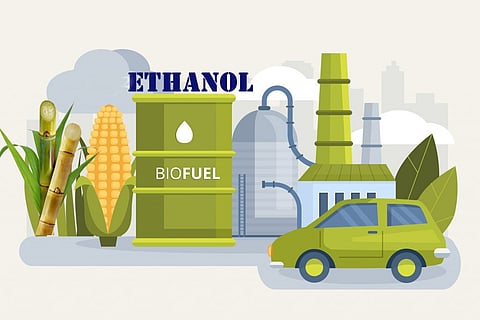
- Home
- Live Blog
- Breaking News
- Top Headlines
- Cities
- NE News
- Sentinel Media
- Sports
- Education
- Jobs

New Delhi: The Directorate General of Foreign Trade (DGFT) on Wednesday updated India’s export rules to allow the export of second-generation (2G) ethanol.
2G ethanol or ethyl alcohol is made from non-food materials like bagasse, wood waste, agricultural residues, grasses, algae, and other renewable resources. It is considered environment-friendly as it produces lower carbon dioxide emissions and has the advantage in that it does not compete with food crops for land. The DGFT notification, adding an additional export condition for second-generation ethanol, comes into force with immediate effect.
The rules also state that the export will be allowed only if companies have a valid Export Authorisation and a feedstock certificate from the relevant authority. The policy applies to ethanol under ITC(HS) Code 22072000, which covers ethyl alcohol and other denatured spirits.
Meanwhile, the ethanol blending with petrol by public sector oil companies for sale in India shot up to 19.93 per cent in July this year, taking the average for the ongoing ethanol supply year (ESY) 2024–25 to 19.05 per cent.
The government has been promoting blending of ethanol in petrol under the Ethanol Blended Petrol (EBP) Programme, wherein Public Sector Oil Marketing Companies (OMCs) — Indian Oil, Bharat Petroleum, and Hindustan Petroleum — sell ethanol blended with petrol.
The country’s target of blending 20 per cent ethanol with petrol has been advanced from 2030 to Ethanol Supply Year (ESY) 2025-26 due to the fast pace of the expansion. (IANS)
Also Read: Ethanol blending dilemma: India’s flex-fuel plan
Also Watch: